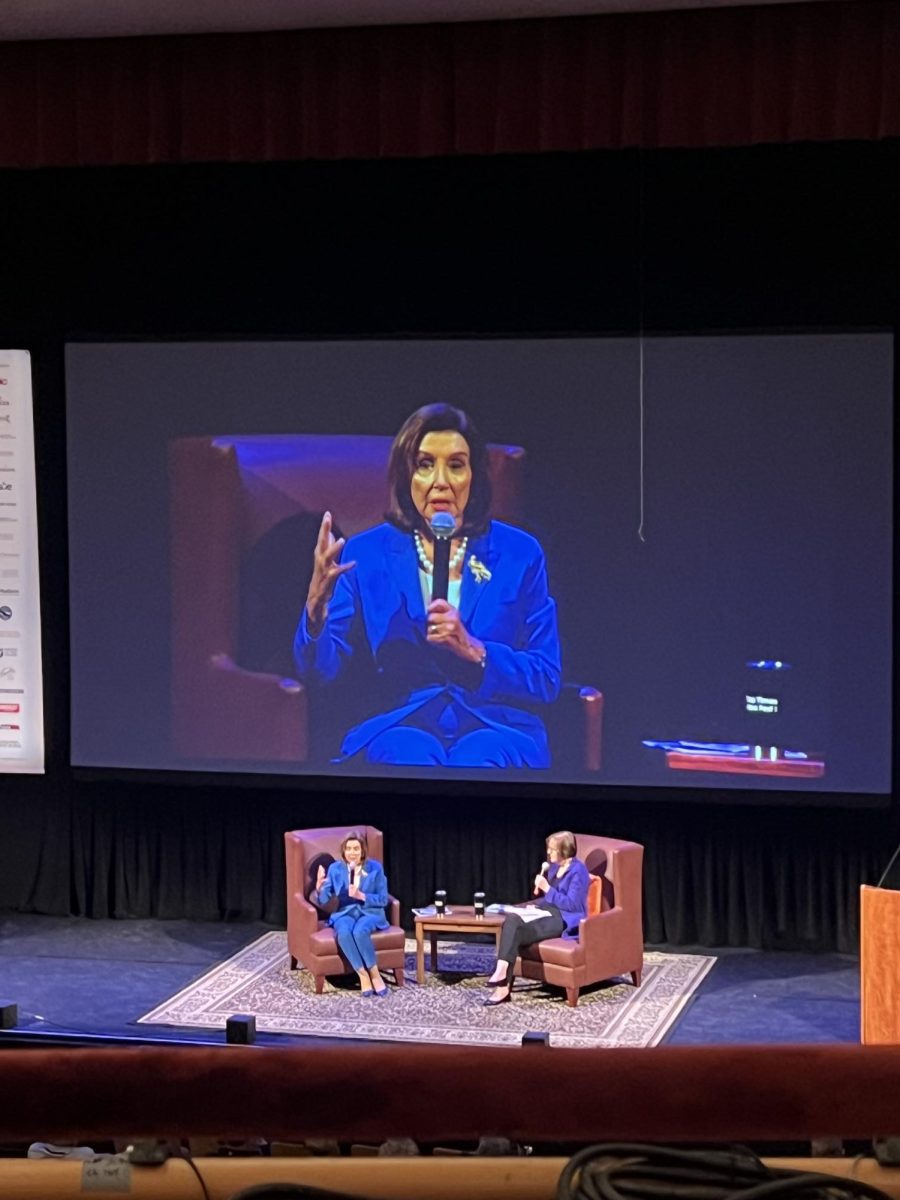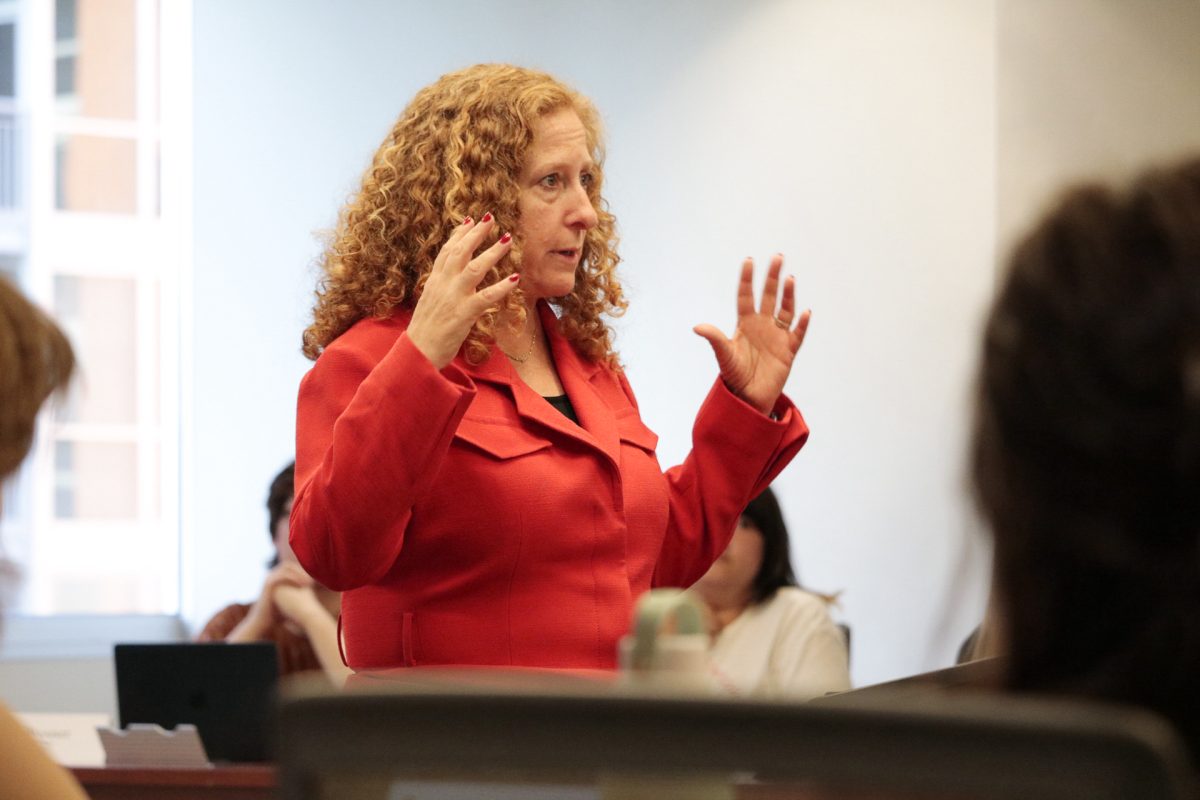Professors hear excuses for why students missed class every day, from sudden illness to oversleeping to needing to appear for jury duty.
But few can say they were working on a university-friendly budget proposal to send to the governor or deciding their chancellor’s salary.
“I had one professor that told me it’s definitely one of the best excuses he had heard in a long time for missing class,” said University of Wisconsin graduate student Colleene Thomas.
Thomas and Kevin Opgenorth, who attends UW-Platteville, serve as the two student representatives on the UW System Board of Regents.
The regents are the top of the UW System hierarchy. They decide admission standards, approve the budgets of all 13 four-year and 13 two-year institutions and develop standards to be carried out throughout all the campuses.
Many believe including these two student voices on the board offers a crucial perspective on some of the UW System’s most important decisions.
“Students have become the majority player in providing for the cost of education,” Board of Regents President Mark Bradley said. “So from a purely consumer standpoint, I think having a student voice at the table has gotten to be more important because the cost of the education has shifted more from the state to the student.”
Bradley said since he has been on the board, the student regents have been quick to learn the processes of the board, and regardless of their student status, could be “good, solid regents under any circumstances.”
“I think a person’s life experience is more important than whether they’re a student or whether they’ve recently been a student, or whether it’s a while since they’ve been a student,” Bradley said. “And the student regents that I’ve worked with have had very different academic backgrounds, life experiences, so that’s really the value in terms of analysis and reflection and judgment that all regents bring in my experience.”
Some state legislators, who work with the regents on the amount of funding the UW System receives, also value student input on the board.
“The students, obviously, have a very important stake in the university,” said Rep. Spencer Black, D-Madison. “A student representative, if they’re doing their job, brings the perspective of students to the Board of Regents.”
Black said although adding a student to the Board of Regents was controversial when it was first proposed many years ago, “now people see the wisdom in doing that.”
Rep. Steve Nass, R-Whitewater, who is also chair of the Assembly Colleges and Universities Committee, also said it’s important for student views to be represented on the board.
“I think it’s important to have the student perspective from the two student regents to have people who are actually in school right now, know the impact of school, what some of the concerns are, what some of the problems are, what some of the good things are and can relay that message to a Board of Regents,” Nass said.
Representing the student voice
When Thomas was appointed to the Board of Regents in May 2007 when she was a UW-Madison junior, she was not sure how other regents — who are attorneys, executive directors and education leaders from across the state — would view the student representatives.
But after working together on the board, she said the regents were interested in and valued her student viewpoint.
“I can say with all certainty that student regents are treated exactly the same as other regents,” Thomas said. “In fact, I think that the UW System makes a special point to pay attention to the voice of student regents.”
The student perspective often stands out when the board must vote on tuition issues, Thomas said.
She added nearly every tuition decision that comes before the board passes “pretty solidly,” and the dissenting votes are often the two student regents and the state Superintendent of Education Elizabeth Burmaster.
“In that case, I think it’s really important for us to show solidarity because our votes are not necessarily going to change the outcome of the board decision, but it gives a message to the state and to students that when tuition increases, students are forced out of education,” she said.
Originally from Poplar, Wis., Thomas is currently enrolled in a graduate program at the UW La Follette School of Public Affairs.
As an undergraduate, Thomas majored in political science and geography, served on the Associated Students of Madison’s Shared Governance Committee and was a house fellow in the International Learning Community.
Thomas said her role on the board lets her represent the student voice at the top level of the UW System.
“It’s important because students feel like they have a voice, and so there’s some sort of process established for them to submit input and that there’s someone who is addressing their perspective during board discussions,” Thomas said. “This doesn’t always mean on decisions on tuition, but it’s also relevant with decisions about programs that might be offered at our campuses, just a variety of different things the board does all the time.”
She said she has received a lot of support from the UW System for the ideas she has presented to the board in an effort to benefit students and encourages other regents in their advocacy of the UW System to the state government.
Thomas said one of the highlights since sitting on the board was in September 2007 when a letter was drafted and signed by student leaders from across the UW System encouraging state legislators to pass a budget favorable to the state universities.
“I didn’t think much of it when I was putting it together,” she said. “I was just thinking we need to show some support toward the state; we need to lobby the state in some way with a unified voice.”
But when reflecting on the letter, Thomas said the collective student voice was significant and helped contribute to the budget process.
“I’ve heard from a lot of people it’s one of the first times in recent memory there has been such a collective voice from student leaders across the state,” Thomas said, adding it helped students engage in the final budget decision.
Platteville to Iraq to Board of Regents
Calling Kevin Opgenorth “non-traditional” is putting it mildly.
While many students can put student government, business club and athletic participation on their r?sum?s, few can add Ammo Team Chief for the U.S. Army. And even fewer can add member of the UW System Board of Regents.
In May, Opgenorth was appointed as the board’s non-traditional student representative, a role designed for individuals 24 years or older to voice underrepresented student views, including those who are veterans, employed or a parent.
Opgenorth said the work he has done so far has been a great experience, adding he looks forward to bridging communication between students and the regents.
“One of the things that I’m very passionate about is getting students informed about the state Legislature, how that affects the costs of our tuition and basically to have them be aware of what is going on in the state and how their campus or their institution functions as a member of the system as a whole,” Opgenorth said.
After serving for three years in the U.S. Army, including one year in Iraq, Opgenorth returned to UW-Platteville this fall where he is majoring in business administration and economics.
As many issues the regents rule upon affect students directly, including tuition rates, admission policies and university funding, Opgenorth hopes he can show students the decisions made at each monthly meeting are relevant to their education.
“Generally, I think that there is a divide between the students and Board of Regents,” he said. “There’s a gap of understanding and I hope that throughout my two-year appointment, I’m able to assist the students in better understanding what the Board of Regents does.”
Opgenorth said a major issue he is passionate about is veteran’s tuition remission — which offers free tuition to UW System students who have served in the military — and ensuring veterans wishing to receive an education have adequate access to one of the UW System institutions.
“I feel that it’s important to have student input at that level of administration,” Opgenorth said. “As far as the system goes, I think that students should want to and should play a vital role in the governance of the institutions in which they attend.”
In addition to sharing his own ideas on a systemwide level, Opgenorth hopes to bring the voice of students to the board members.
“I want to try to involve as many students as I can because it’s so important,” Opgenorth said. “Hopefully students will let me know what their opinion is about, and further, I can take that opinion to the board.”
Opgenorth said he anticipates facing issues on the board that other regents will discourage him from tackling, but said one of the most important things he learned from his military experience was that “everything is possible.”
“I just don’t believe that accomplishing things is impossible — that’s kind of how I feel about being on the Board of Regents,” he said. “I think that everything is possible. We just have to try our very hardest to get to that point.”













